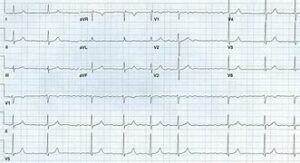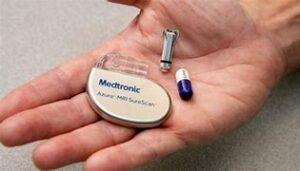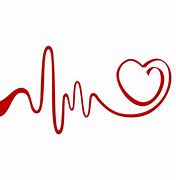The Domino effects of A-Fib-How to Cope Daily
Heart disease, Sharing my experience.

My articles are about sharing ways to cope with atrial fibrillation. I’ve had it for many years, and I’m surprised at how many people are still in the dark about this disease. The domino effects of-A-Fib-how to cope daily is an even bigger struggle and it’s real my friend. I just learned that after a heart attack, you can inherit A-Fib, there are so many different causes.
For the most part, I believe it’s inherited (family tree showed all of the women on mothers’ side, have died of heart disease) and caused by stress, unhealthy diet and little or no exercise. There are many reasons for this disease from a panel of doctors, they came up with around 20. Welcome to heart disease, sharing my experience.
I’ve come to this notion because of all the research I’ve done on this subject. My intentions are to spread the word of this disease (Right now 6.1 million people don’t know about A-Fib in America, and over 12 million people in the U.S. will have a-fib by 2030) and what you can do to prevent it from happening. The earlier you get treatment, the better.

Mission
I’m sharing this information because it is vital for your survival, and if you don’t know or recognize the symptoms of A-Fib, there’s a chance it will get worse over time. A-Fib left untreated puts you at higher risk of heart attack or stroke. (As I am an Amazon associate, I get a commission on qualifying purchases at no additional cost to you), Exercise is vital to the disease to maintain good cardiovascular health.
Paying it Forward-Here’s my story
Heart disease, Sharing my experience.
Even though I had symptoms since high school, the diagnosis didn’t come until one day in 2007. In 2003, I was working in a very highest of “high stress” position (in my opinion), on the front lines if you will.
While helping a customer at work, suddenly feeling faint, I was starting to pass out. Grabbing the counter on the way down to the floor ensured less injuries in the fall. I wasn’t all of the way unconscious, and I saw everyone come running to see if I was OK. They called 911, Bless them.
Years went by without a diagnosis…

There was a trail of doctors and emergency visits to come. CT scans, MRI’s, EKG’s, you name it. Taking time off of work many times wasn’t helping my situation. This went on and on for years until one day at work, I had an episode and had to go to the hospital (again) from work.
This time it was different. The doctor at the time suggested an ablation. You see, there are different types of A-Fib, four to be exact. I have paroxysmal atrial fibrillation, it occurs with a rapid, erratic heart rate suddenly begins and then stops on its own. Sometimes hours later, sometimes days, but it always stops within 7 days.
Ablation…
Ablation was explained to me like this, the doctor commented, “when your electric signals are not hitting (or communicating) in the right places your heart will be disrupted”. That made sense on how I’ve been feeling, like when your motor mounts break and the engine rocks. That’s exactly how I felt! So, I had the operation, (non-evasive).
Catching a Break
After I healed, I was good to go for about 4 years. My heart didn’t have episodes as often. I tried yoga to get myself into shape and found I really liked it. Of course, I had to buy cute yoga pants and shirt, it was nothing like they offer today (and I’m older, needing a little more coverage). I had to start slow, but they work with you, and I really appreciate my instructor.
I continued working and feeling good. I started walks, short ones but it was at least something in the way of #Ad exercise, besides the yoga work out. I carried on with a fairly normal life again.
Second Ablation… (The Domino effects of A-Fib-How to Cope Daily)
At the end of 4 years, I started having episodes again only they seemed to be worse than they were before. I was feeling faint a lot of the time, scared to drive (I’d only drive to work and back, 7-minute drive), sometimes pulling over to try techniques like bearing down as you’re bent over to get that heart pumping like it should, that worked sometimes.
After having another ablation, within a year’s time I ended up in the hospital about 3 to 4 times a month. The fear that I felt was enormous and then anxiety kicked in. I wouldn’t go anywhere except to work and home for fear of having a stroke or worse. I stopped going to the grocery store because I couldn’t walk very far without running out of breath, so I stayed home.

Living alone in a small studio apartment I still got winded walking to the bathroom (approximately 4 steps) feeling like I was going to pass out, I’d head to my bed (4 steps back) and try to use slow breathing techniques to slow my heart rate. This is what I did every day many times a day. How could I go anywhere or have a life?
Fear of A-FIB comes with major anxiety
Every day, I lived life in fear that I was going to die (the fear is real). It got to the point that I felt safer going to work and being closer to the hospital. My quality of life was zero. I have one daughter and three grandkids I love dearly. I missed out on a lot of gatherings due to my medical condition.
Pacemaker Implant

At the end of the year of my 2nd ablation, I had to have my co-workers call 911 first thing in the morning before we opened the office. I was literally on the floor, and it felt as though I wasn’t going to make it through this one (episode).
I went by ambulance and just as we were pulling into the emergency area, my heart stopped. I bared down hard and held my arms tight and close to my body. This feeling was the same feeling I’d been having, only I didn’t know my heart was stopping at that time.
I looked up at the paramedics and they yelled “she’s pausing” (that’s what they say when your heart stops). The defibrillator in the room was ready. The nurse said she wasn’t leaving my sight, (that scared me even more and at the same time comforted me) bless her heart.
Turns out I stayed overnight, and my heart had stopped 13 times. In short, I had a pacemaker implant within a month.
Rehabilitation… (Slow Process)
I spent the following 2 years trying different pills to see which one fit me the best. I finally was able to handle Eliquis (blood thinner) and metoprolol (controls the heart rate). I was on Mutlaq (controls heart rate) but with side effects, so I stopped those. Trial and error and finally the meds started working for me.
It took me about two years to feel good enough to get out of the house. Not because of anything except that I’d get so out of breath, and I’d have to stop after a half of a block or less. I want to know what others have gone through. This is real people, and if you’re still reading this, I want to thank you.
Made a comeback
As of today, I am healthy and still trying to get my health back after having the pacemaker put in. Bought myself a #Ad rowing machine, began yoga class this year but covid stopped that so I yoga at home. I’m healthy and still thank God for everyday I’m here. I’m going to live a long and happy life.
My story is ending but I just want to say, A-Fib changed my life in a way that I look at the world differently now. I’m careful to eat right and exercise, which was never a priority in my younger years. I’ve researched what foods to avoid and what foods to eat, it’s been a real eye opener for me.
I’d like to hear your thoughts on A-Fib,
What worked best for you providing you?
Maybe you’re cured because you caught it early enough?
Maybe you’re tired of arrythmia and don’t know what to do?
I can help you with that as I am now a veteran of A-Fib at 64 (years old).
All we can do is keep looking for answers and deal with this disease on a daily basis, one day at a time. The benefits of sharing experiences are seeing how other people manage symptoms and what they do to offset those symptoms. It is awesome when someone shares something that I could try out, and I have, and It worked!
Sharing is a good thing…
To everyone out there that has A-Fib I’d like to say, keep the faith and hope for a cure. I’ll be writing more articles on A-Fib, so you’re welcome to read them anytime, maybe share what you are going through, what do you do differently, what’s worked and hasn’t worked for you? I’d love to hear from you.
Thank you for stopping by my website, if you have any questions, or if you have a comment, please feel free to leave it below. If you’d like to read more on A-Fib and Yoga, you can go to my other website at www.yogahealthbenefitsarticle.com
Wishing you all the best, Sherry
